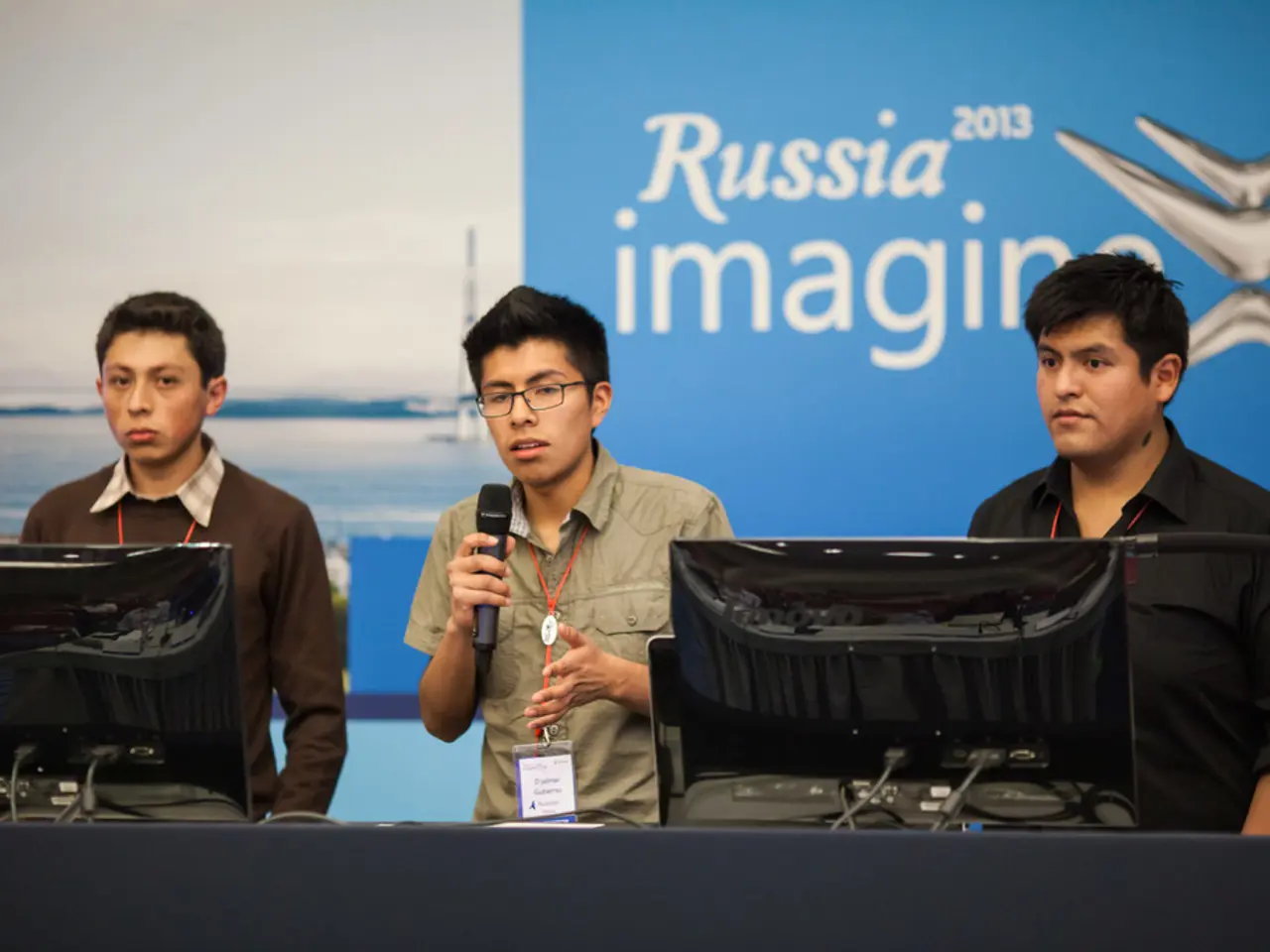International Gloom: Trump, Putin, and European Insights Gleaned from the Alaska Meeting
In the aftermath of the Alaska summit between President Donald Trump and Vladimir Putin, the European Union (EU) is considering a significant shift in its approach towards Ukraine. This change aims to establish Ukraine as a de facto security partner, enabling Ukraine's long-term defense without relying on US backing.
The EU's strategy involves targeted capability- and integration-building within existing EU and NATO institutional frameworks. This could include ongoing and increased European arms transfers, deeper integration measures like basing Ukrainian veterans at European training grounds and military academies, and taboo-breaking steps like recruiting volunteer troops from EU member states.
Priorities for this new partnership include improving command-and-control coordination, civil-military integration, procuring unmanned systems, transporters, and counter-drone capabilities, and reforming reserve systems.
However, the advocacy for Ukrainian participation in the summit fell on deaf ears, with neither the Ukrainians nor their European allies present at the meeting. President Trump, in an interview with Fox News, stated that it was up to President Volodymyr Zelensky "to get it done" regarding the situation.
The summit also underscored the European marginalization in talks about the future of their own continent. Putin used the summit to press his narrative about the root causes of the war in Ukraine, a narrative that appears to find some echo in Trump's worldview.
The risks to Ukrainians and their European allies of continued US leverage over their security were reinforced by the summit. In response, the EU should play a more assertive, conditional role in its wider eastern neighbourhood.
In Moldova, the EU can tie increased macro-financial and energy backing to clear rule-of-law benchmarks, and fund an expanded EU cyber and disinformation support mission. In the south Caucasus, the EU should not only back the US-brokered normalisation between Armenia and Azerbaijan, but also play a leading role in realizing it through backing for border policing, reform-enabling financial support, and phased visa facilitation (all linked to rule-of-law progress).
The EU's goal is to achieve strategic relevance in the short run while moving towards full strategic autonomy in the long run. This includes focusing on building strong European military forces for credibility against authoritarian leaders. The EU's efforts should be directed towards reducing US leverage in West-Russia relations.
In an interview with Fox News, the politician marginalized in terms of the EU's future, Friedrich Merz, expressed concerns about the direction the EU is heading. The summit indicated a direction of travel that does not bode well for European interests, with Trump suggesting he may delay tough sanctions that he had previously threatened.
As the EU navigates this new landscape, it is clear that a more assertive approach is needed to protect its interests and those of its allies in the region.
Read also:
- Tobacco industry's suggested changes on a legislative modification are disregarded by health journalists
- Trump's Policies: Tariffs, AI, Surveillance, and Possible Martial Law
- Uncovering Political Ad Transparency: A Guide to Investigating opponent's Political Advertisements in the Digital Realm
- Elon Musk praises JD Vance's debate performance against Tim Walz








